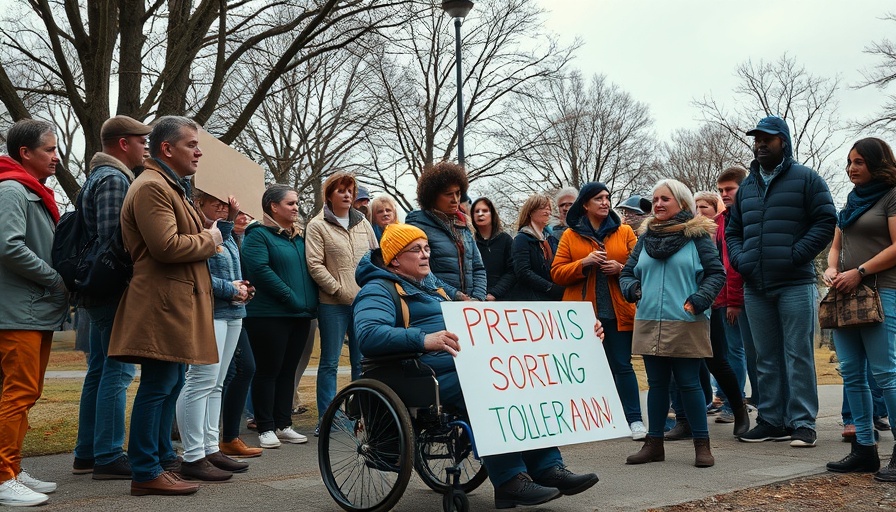
Ohio Ruling Empowers Trans Youth: A Historic Decision
In a landmark decision, the Ohio 10th District Court of Appeals has blocked the state’s restrictive law on gender-affirming care for minors, affirming the rights of transgender youth to access critical healthcare. This ruling not only highlights the importance of parental rights in medical decisions but also emphasizes the adult’s role in safeguarding the well-being of their children. The court's decision has been hailed as a victory for bodily autonomy and a significant setback for measures that ban essential transgender medical care.
The Court's Reasoning: Parents Know Best
The court’s 2-1 ruling, written by Judge Carly Edelstein, intricately examines the implications of the law which previously prohibited counseling, hormone therapy, and gender-affirming surgeries for minors—actions deemed vital by many healthcare professionals. Judge Edelstein pointed out that while minors may lack the capacity to fully understand the complexities surrounding gender-affirming treatments, their parents do have that understanding, reinforcing the idea that parents should be allowed to make decisions about their children’s healthcare. The judge stated that the law’s targeting of gender-affirming treatments specifically—instead of addressing all similar medical treatments—amounted to discrimination against transgender individuals.
Impact on Families and Support Structures
This ruling reflects a growing acknowledgment of the legitimate healthcare needs of transgender youth within Ohio, providing an invaluable platform for families navigating the complexities of gender identity. Freda Levenson, the legal director of the ACLU of Ohio, expressed optimism, stating, “This win restores the right of trans youth in Ohio to choose vitally important health care, with the support of their families and physicians.” This ruling is seen as a reaffirmation of the unique challenges that transgender individuals face and underscores the need for healthcare systems to be inclusive and supportive.
Broader Implications: A Shifting Landscape
The implications of this ruling extend beyond Ohio, showcasing a significant challenge to similar laws across the country. The ACLU’s successful litigation may inspire similar legal challenges in states with restrictive measures, suggesting a potential roadmap for advocacy groups. Additionally, with other states closely watching the outcome of this case, it may influence upcoming legislative efforts to either support or combat gender-affirming care in various regions.
Public Reception: Divided Opinions
The public’s reaction to the ruling is polarized, mirroring the national dialogue around LGBTQ+ rights and healthcare access. Advocates for transgender rights celebrate the decision as a step toward equality and acceptance, while others express discomfort, echoing concerns over minors making permanent medical decisions. Many questions remain about how this ruling will inform legislation and healthcare practices moving forward, especially in conservative enclaves across the nation.
Learning from Other States: A Comparative Analysis
Ohio's recent court ruling can be contextualized within the broader trends of gender-affirming care policies across the U.S. States like California have leaned toward supporting inclusive healthcare access, resulting in stronger legal protections for transgender youth, while others have moved to restrict access. This creates a patchwork of policies that can significantly impact the quality of life for transgender and non-binary minors nationwide. Exploring these differences is vital for understanding the landscape of trans rights and healthcare in America.
A Call for Awareness and Action
As this ruling reverberates through the community, it reminds us of the importance of understanding and supporting the diverse needs of all children, especially those facing unique challenges. Advocates are encouraged to remain vigilant in their support for LGBTQ+ family rights and to engage in local discussions that promote understanding and acceptance of transgender individuals. The importance of open dialogue and empathetic listening in community conversations cannot be overstated.
 Add Row
Add Row  Add
Add 




 Add Row
Add Row  Add
Add 








Write A Comment